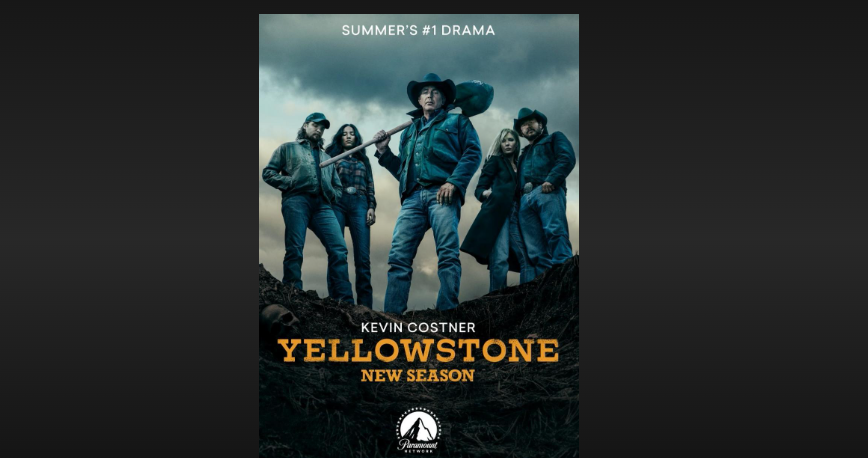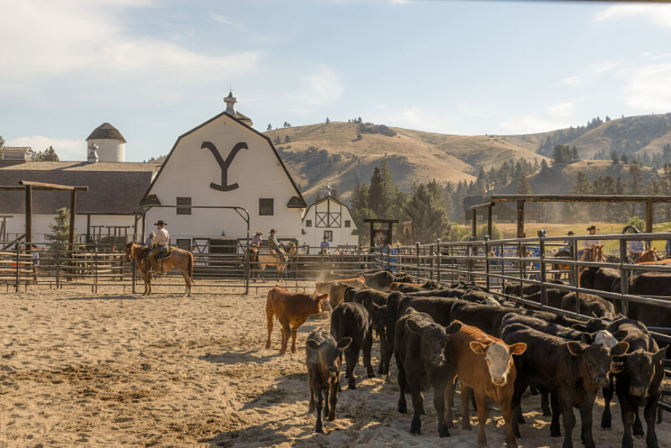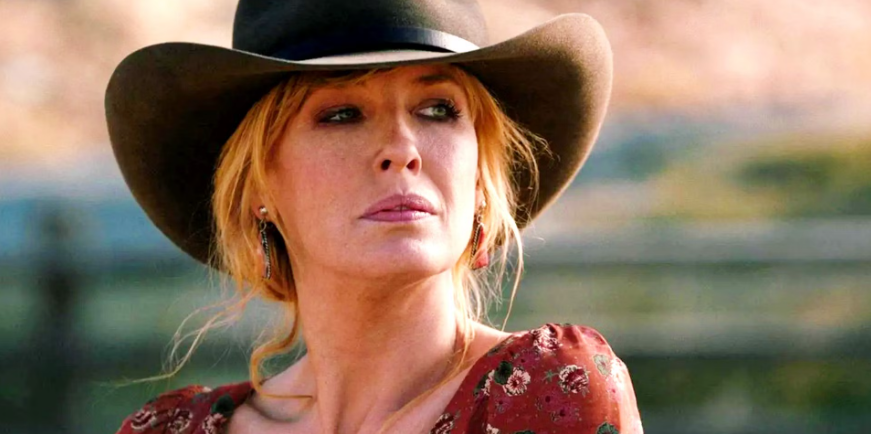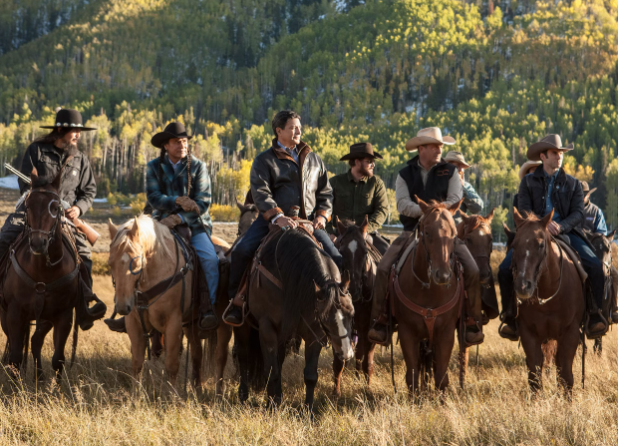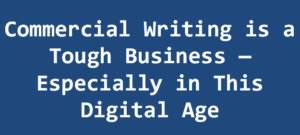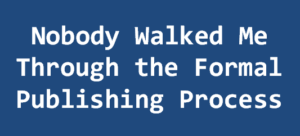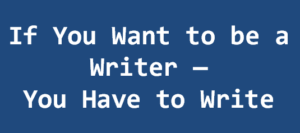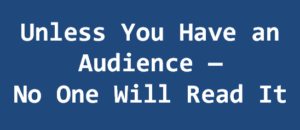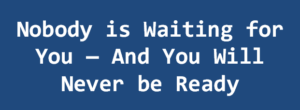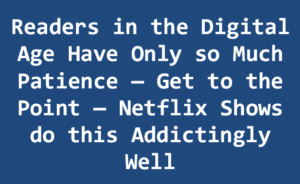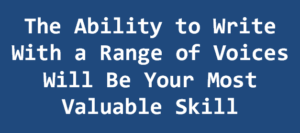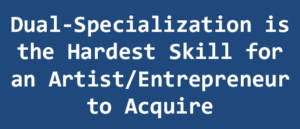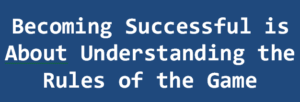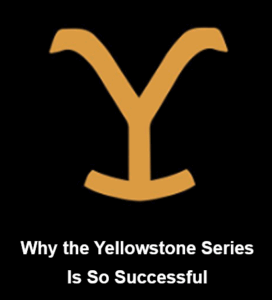 Occasionally, something special breaks out of the sadly predictable churn of visual entertainment slop and strikes a deep, resonant chord with the masses. Yellowstone, the modern Western TV series created by Taylor Sheridan, is one of those rare cultural lightning bolts. It’s not just a show—it’s a phenomenon. And a natural, rational question is why?
Occasionally, something special breaks out of the sadly predictable churn of visual entertainment slop and strikes a deep, resonant chord with the masses. Yellowstone, the modern Western TV series created by Taylor Sheridan, is one of those rare cultural lightning bolts. It’s not just a show—it’s a phenomenon. And a natural, rational question is why?
That’s what we’ll figure out in this piece. We’ll explore the roots of the Western genre, where Yellowstone came from, who made it, what it’s about on the surface and beneath, who populates its fictional world, and what that all says about the human condition. We’ll finish with the concrete; the numbers, the cinematic craft, and why this modern-day cowboy tale continues to ride high in the saddle of American tradition.
To understand Yellowstone, you have to go back to the origin of the Western itself. From the silent era through the heyday of John Wayne, Gary Cooper, and Clint Eastwood, Westerns dominated Hollywood. They were tales of moral clarity set against rugged backdrops—lawmen, outlaws, cattlemen, homesteaders, and the eternal struggle between civilization and wilderness.
By the 1970s, the Western faded. Times changed. Audiences became jaded with black-and-white morality. The world grew grey. The genre limped along, appearing sporadically in projects like Unforgiven, No Country for Old Men, and Deadwood, but Western had lost its grip on popular imagination.
Then came Yellowstone.
The Birth of a Modern Western
Taylor Sheridan, a cowboy-actor-turned-writer from rural Texas, brought Yellowstone into existence through grit, talent, and raw storytelling instinct. Having penned modern classics like Sicario and Hell or High Water, Sheridan understood something most Hollywood writers didn’t. Americans were starving for stories about identity, land, family, and legacy—told without irony and without woke, coastal agenda.
Sheridan conceived Yellowstone as a Shakespearean drama set in the modern American West, wrapped in cowboy boots, violence, and breathtaking Montana vistas. He pitched it, wrote it, directed it, and even appeared in it. Yellowstone was a risk. Most networks passed. But Paramount gave it a chance.
And it erupted.
The Yellowstone Framework: A Family Empire on the Brink
Yellowstone centers on the Dutton family, owners of the largest contiguous cattle ranch in the United States. Led by the grizzled patriarch John Dutton (Kevin Costner), the family stands as the last line of resistance against developers, tribal nations, environmentalists, and modern bureaucrats who all want a piece of their land.
It’s King Lear meets Dallas meets The Godfather—but set under the wide-open skies of Big Sky Country.
What’s compelling is not just the land war, but the war within the land. The Duttons are fractured—each child a reflection of a different wound in the American psyche. They’re fighting to keep something that’s always slipping away: power, legacy, identity, and love.
Plotlines: Above and Below the Surface
On the surface, Yellowstone delivers a gripping story of territorial conflict. There’s land grabs, political corruption, murder cover-ups, betrayals, and turf wars with neighboring tribes and out-of-state billionaires. Every season escalates like a blood-soaked chess match.
But the subtext is richer:
- Modern vs. Tradition: The ranch stands as a symbol of a dying way of life—gritty, independent, and self-sufficient. The enemies? Tech billionaires, tourism developers, and even the federal government. The question: Can the old way survive the new world?
- Masculinity in Crisis: The men of Yellowstone are warriors, stoic and flawed. They love hard, fight dirty, and wrestle with their ghosts. Sheridan doesn’t glamorize violence—but he doesn’t apologize for it either.
- Wounds of the Past: From generational trauma to broken family bonds, Yellowstone pulls no punches in exploring how the past shapes us—and often ruins us.
- The Cost of Power: Every Dutton pays a price. Power is not just earned—it’s bled for.
The Characters: Icons and Flaws in Flesh and Blood
At the heart of Yellowstone is its truly unforgettable cast of characters. Sheridan builds archetypes—but each one is flawed, real, and brutally human.
John Dutton (Kevin Costner) — The patriarch. A rancher’s soul with a king’s burden. He loves his land more than anything—and that’s the tragedy. He’s ruthless when crossed, stoic when suffering, and emotionally shut down. He fears legacy dying with him.
Beth Dutton (Kelly Reilly) — The daughter from hell—and heaven. Beth is brilliant, broken, and burned by her past. Her love for her father is fierce, and her vendettas are biblical. She’s the most complex female character in modern TV: a whiskey-drinking, foul-mouthed tornado of pain and loyalty.
Jamie Dutton (Wes Bentley) — The adopted son with a chip on his soul. Desperate for approval, manipulated by politics, and burdened with a shameful secret, Jamie is Shakespearean in his descent into betrayal and tragedy.
Kayce Dutton (Luke Grimes) — The prodigal son. A former Navy SEAL, Kayce wants peace but is born for war. He straddles two worlds—his white ranching family and his Native American wife’s heritage. His journey is one of redemption, loss, and identity.
Rip Wheeler (Cole Hauser) — John’s enforcer and Beth’s true love. Rip is the ultimate loyal soldier—violent, principled, and scarred. His quiet love story with Beth is the emotional backbone of the series. He’s a cowboy’s cowboy.
Thomas Rainwater (Gil Birmingham) — The tribal chief. Intelligent, strategic, and culturally rooted. Rainwater isn’t a villain—he’s a mirror to Dutton. Both want to reclaim their people’s destiny. They just wear different boots.
Common Themes of Human Nature
What makes Yellowstone rise above cowboy cosplay is its unflinching look at human nature—the human condition:
- Territory and Survival: At our core, humans are tribal. We defend our land and blood with primal intensity.
- Family as Fortress and Prison: The Duttons fight the world—and each other. Love, betrayal, sacrifice, and resentment simmer in every scene.
- Power Corrupts: Sheridan shows that power always exacts a toll. No one wins unscathed.
- Legacy and Mortality: Everyone wants to leave something behind. But legacy often demands more than life can give.
These are timeless truths. That’s why people watch. That’s why the audience stays.
The Cinematic Secrets: How Yellowstone Looks So Damn Good
Yellowstone doesn’t just tell a good story. It looks like a cinematic dream.
Sheridan insists on filming on location in Montana and Utah, using natural light and wide-lens compositions. There are no green screens or fake backdrops. Every shot feels like a painting—big skies, golden fields, mountain majesty.
Behind the Lens:
- Cameras: The series uses ultra-high-end Arri Alexa cameras to capture detailed, dynamic imagery.
- Lighting: Natural light dominates. Cinematographers favor early morning and golden hour to paint emotional tones.
- Color Grading: The post-production process enhances earth tones—ochres, burnt orange, dusty blue—creating an iconic palette that feels both ancient and raw.
- Soundtrack: Country, Americana, and haunting instrumentals underscore scenes with authenticity. No pop hits. No rock. No roll. Just soul.
Sheridan, a cowboy himself, even owns the ranch where much of the show is filmed. That authenticity bleeds through the screen. Scenery. Wardrobe. Animals. People. And foul language.
The Numbers: Proof of Popularity
Here are some Yellowstone facts.
- Viewership: By its fourth season, Yellowstone was drawing over 12 million viewers for its finale—more than any other cable show in years. It became the most-watched cable series since The Walking Dead.
- Streaming Success: Although produced by Paramount, Yellowstone exploded on Peacock (NBCUniversal) in streaming numbers—proving that audiences don’t care who owns the rights, they just want the show.
- Franchise Expansion: Sheridan has spun Yellowstone into a universe:
- 1883 (prequel with Tim McGraw and Faith Hill)
- 1923 (with Harrison Ford and Helen Mirren)
- 6666 Ranch (in development but currently on hold)
- Financials: Estimated production cost is between $10 and $20 million per episode. But the returns? Paramount’s subscriber base surged. Merchandising and tourism in Montana boomed. The Yellowstone franchise, and its spinoffs, is worth approximately $3 billion in Intellectual Property (IP) value.
So Why Is the Yellowstone Series So Successful?
It tramples down to timeless fundamentals.
- It tells a classic story—land, love, loyalty, and loss—in a modern, unapologetic voice.
- It’s not afraid to be masculine, raw, and emotional.
- It resonates with a wide range of people—from rural ranchers to suburban streamers.
- It looks like a film but runs like a series.
- It’s bold, brutal, and beautiful.
Taylor Sheridan didn’t just revive the Western—he rewrote it. And audiences can’t get enough because Yellowstone doesn’t pretend. It doesn’t pander. It speaks to something ancient in us all.
Yellowstone works because it honors the old while understanding the now. It shows us who we are at our best—and worst. And it reminds us that legacy isn’t built on dreams. It’s built on blood, sweat, and grit.
Just like the Duttons. Just like the West. Just like any good story worth telling.

